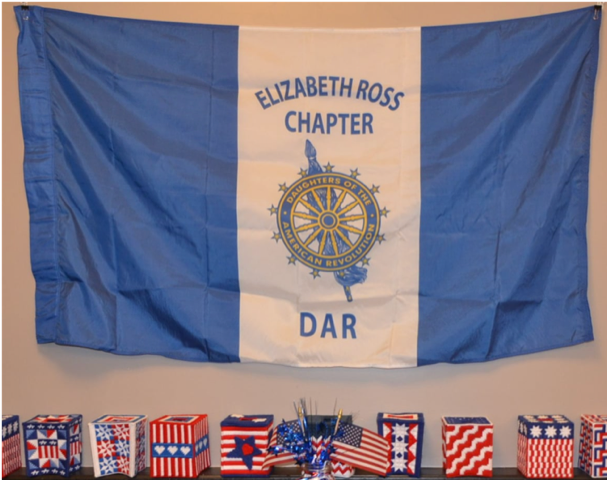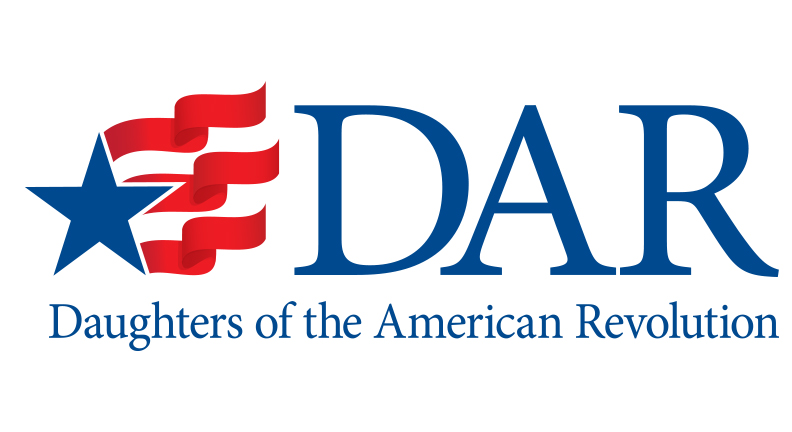The first meeting to organize the Chapter
took place on June 5, 1896, it was on
November 12, 1896, that the Elizabeth Ross
Chapter was officially established as the
sixth Daughters of the American Revolution
chapter in the state of Iowa. Although the
chapter was originally formed with twelve
members, by the end of 1897, the chapter had
33 members. At the end of 1898, the
membership had grown to 45.
Six years after the establishment of the
National Society Daughters of the American
Revolution, Mrs. Clara Cooley, state regent
of the Iowa Society DAR, appointed Mrs.
Alice B. Mitchell to organize a chapter in
Ottumwa. Twelve ladies in Ottumwa, Iowa
formed the Elizabeth Ross Chapter. The
charter was formally presented June 5, 1896
and closed January 15, 1897.
This Chapter was the sixth one to be
organized in Iowa. Charter members were:
Alice B. Mitchell, Annie Daum, Mrs. Pope,
Laura Ross, Charlotte McCue, Catherine
Taylor, Lynn Mitchell Williams, Dorothy Bell
Burton, Flora Ross, Emma J. Holt, Mrs. A.G.
Harrow, Rose Dutton Gephart, Eva Philpott,
Harriett Briggs, Mrs. J.D. Ferree, Mrs
Devon, Julia Merwin Ennis, Mrs. Charles
Aveilhe, Charlotte Merwin Haven.
The first name selected for the new chapter
was General Israel Putnam but
the Chapter was notified that this name was
already in use. Betsy Ross was
suggested, but some thought that the
name Betsy wasn’t a dignified
name, so the chapter was duly christened Elizabeth
Ross.
To obtain a gavel, Mrs. Mitchell donated
cherry wood which had been brought from the
farm at Mt. Vernon. The gavel and a base for
the gavel was constructed from this wood and
they continue to be used at each meeting.
Some of our early history:
- April 21, 1898 -- War was declared on
Spain. Immediately the Daughters began
making plans for the assistance of the
Sons of Iowa who would be involved in this
war. A concert was given and the proceeds
sent to Company G who used the money to
buy a mess tent at Jacksonville, Florida.
When troop trains passed through the city,
the Daughters were at the station with
coffee, milk, fruits, and other foods.
When the sick and wounded were around the
city, games, fruit and flowers were
distributed to them. On Dec. 23rd
500 pounds of magazines and other reading
matter were sent to military hospitals in
Kentucky, Georgia and in Manilla and Cuba.
- 1908-1912, Elizabeth Ross Chapter headed
the work of the marking of the City
streets, brought lineage books up to date,
gave liberally to the hiring of the first
visiting nurse in Ottumwa, and to the
furnishing of the Iowa Room at Memorial
Hall, Washington, D.C. The Chapter also
sought out and marked many historical
spots in the County. Among them was the
marking of the grave of Chief Wapello at
Agency, IA and the grave of Black Hawk.
- 1918-1920 -- Our regent, Mrs. Carolyn N.
Patterson, was honored by representing
Mary Washington in the pageant of American
Women in Washington, D.C. A scholarship
fund to the National College was begun. We
helped during the flu epidemic. The
Benjamin Franklin CAR Social Club was
organized with thirty five members.
Additionally, the Daughters were active in
patriotic affairs during WW I including
the making of bandages, working with the
Red Cross, knitting of sweaters and
garments and making jams and jellies for
those men on the battleship Iowa.&
Donations of money were made to the Red
Cross War Relief Fund and the Iowa Flag
Fund.
- March, 1918, Elizabeth Ross Chapter
hosted the state convention at the Hotel
Ottumwa.
- 1920-1922 -- This time marked the
beginning of the Peace Program and the
close of the WW I. The book Proud
Mahaska was placed in the Iowa
collection and other books were shipped to
Piney Woods School.
- 1928 -- Mrs. Clarence Harper prepared a
study of American History as Reflected
in Costumes. An exhibit consisting
of 13 dolls dressed in costumes like those
worn by early Americans and continuing
through our country’s history, including
Civil War days was prepared. These were
used at regular Chapter meetings, as well
as at the 13th annual state
conference at Des Moines. This collection
grew to a total of 22 dolls.
- 1939-1946 -- World War II again had the
Daughters engaged in the salvaging
campaign, saving the scrap iron, tin cans,
grease, rubber, paper and so forth. They
also helped with the U.S.O. with their
activities.

|

